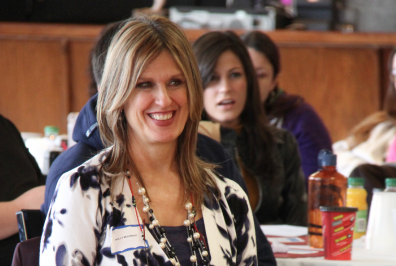Sparking Passion In Your Work (Holly McDonald)
Coming into the social work world later in life, I managed to pick up some interests along the way. I love yoga and was hoping to run a yoga therapy group one day. I would use a group design I developed while in graduate school and wow the participants with this progressive eight week program. Well, I still have not had the opportunity to implement my brain child, but realized that I use yoga in my everyday social work practice. Generally speaking, I utilize some very basic yogic tenants, such as body and mind awareness, plus the use of intention. I also realized that perhaps many people are using premises in their work stemming from whatever interests, hobbies, or passions they have.
It makes sense from a cognitive behavioural point of view, as thoughts determine behaviour, so naturally our cognitions pertaining to whatever gives us bliss will somehow manifest in our actions. Our chosen field, the aspects of it that most interest us, and what skills we bring to it may be traced back to whatever brings us joy.
Writing this article made me realize that I do not have to actually run a yoga class with my clients to use yoga techniques, which fall under the heading of mindfulness. First of all, I bring a certain awareness of my body while sitting across from my client. I often find myself scanning it to see where I am holding tension. Some days are better than others. I try and release the tension in between clients by doing some light stretches. Being aware of stress that is being held in my body results in some stress-busting behaviour. I try and maintain this body/mind connection throughout the session as I try and remain aware of how I am sitting, my facial expressions and how many times I am checking to see what time it is. I am not perfect. I confess to doing this with some clients more than with others.
The second yogic technique is being aware of my thoughts during sessions with clients, as I know that they will come out in my behaviour whether it is looking quizzically, shifting uncomfortably in my seat, or putting my hand over my mouth. I have to admit that I do this when I want my client to stop saying whatever it is he or she is saying, and that I do not agree with. I accept that I am human with feelings, thoughts and opinions formed from my past experiences, and as such they are difficult to separate from and for me to be totally objective. This awareness, however, helps me to stay focused on my client’s issues and not mine.
The third way yoga manifests itself in my role as a social worker is in the realm of intentions. Being conscious of my intentions for the day results in more cognitive behavioural awareness in that my intentions or hopes, determine how I act. For example, most days I sit quietly each morning and project positive intentions. Some days I am better at doing this than on other days. However, I know the days that I miss sitting quietly, as I am less grounded and become irritated more easily. Before my counseling sessions I try to spend a few moments in silence and make a resolution to remain centered and focused on my client. I also intend for me to be in my body and feel comfortable there. This helps me to fidget less and feel more at home in my body. Being centered in one’s body helps to integrate one’s feelings, which is so important to healing, and just a good example to set.
Anyone’s hobby or passion can, and probably is, already being incorporated into whatever area of social work that they are working in. For example, mindfulness of body, thoughts and intentions can come as a result from gardening, playing music, writing, being in nature, fishing, quilting and so on. It is an offshoot of any activity that relaxes us and places us closer to our spirit. So, perhaps another word for mindfulness is soulfulness. We are helping to bring a soulful approach to our practice. For me, soulfulness is akin to authenticity and genuineness. A most effective trio when developing a therapeutic alliance and relationship.
There is also the practical side of bringing our hobby, passion or existing skills to our job as a social worker. A love of gardening can produce wonderful community gardens. Skillfulness in social media can advance one’s agency in terms of public relationships or train hesitant staff. Providing music lessons individually or with other musicians to high priority children, can add diversity and more meaning to your work. Weaving your passion into your work can lead to writing an article like this one, presenting your project to your co-workers or community partners. The dreaded job of public speaking can be made easier by talking about something that excites you, and that you are comfortable with and knowledgeable about. More importantly, your projects can help stir ideas in others.
When I was young I drew a picture of myself sitting at a typewriter. Who knew I would be writing an article many, many years later? I also wanted to be a singer and here I am many, many years later teaching yoga. This helps me to find and express my voice. It also helps me to be a better social worker, whether or not I teach a class to my clients or not, as I am bringing a sense of mindfulness to my thoughts, actions and intentions.
